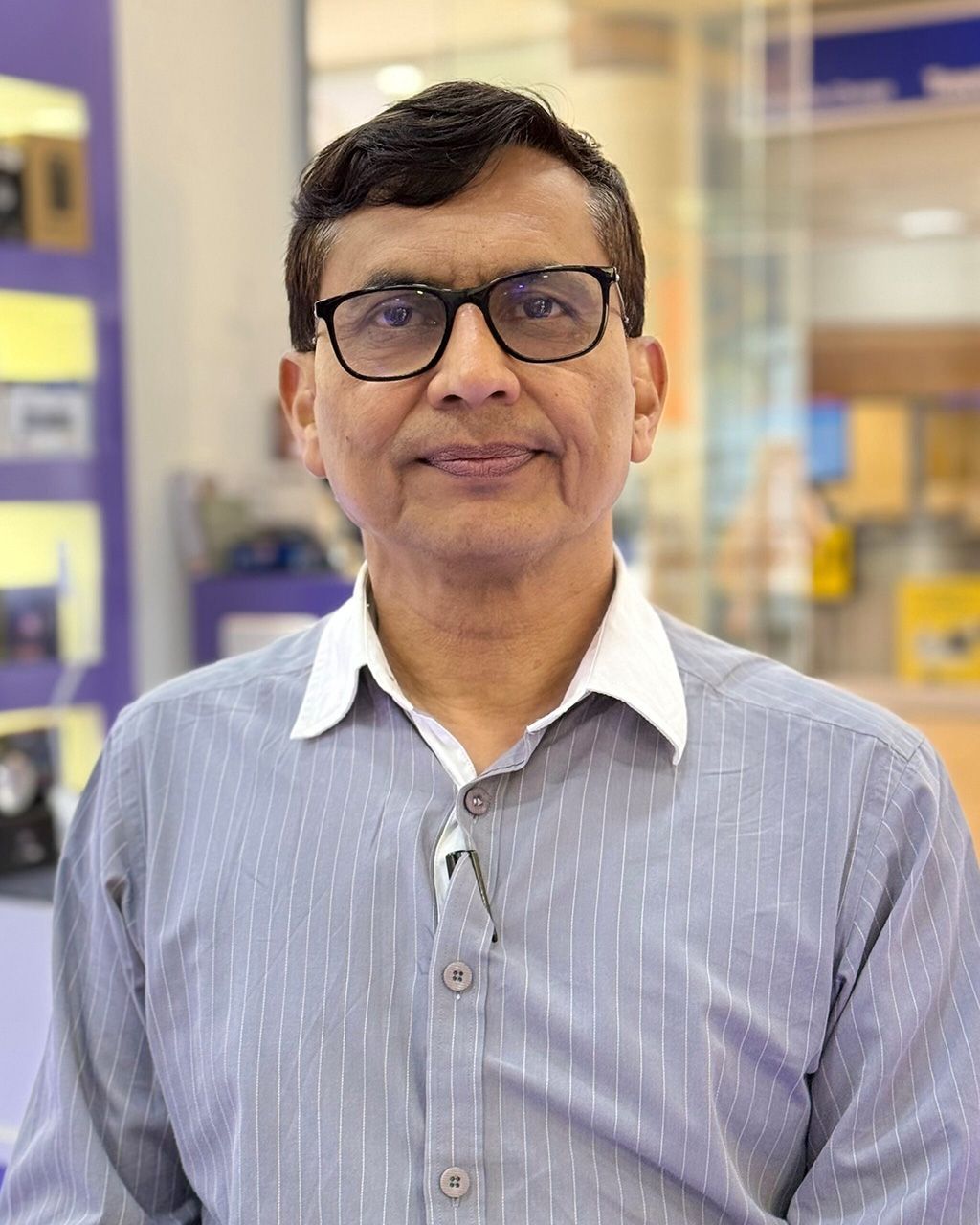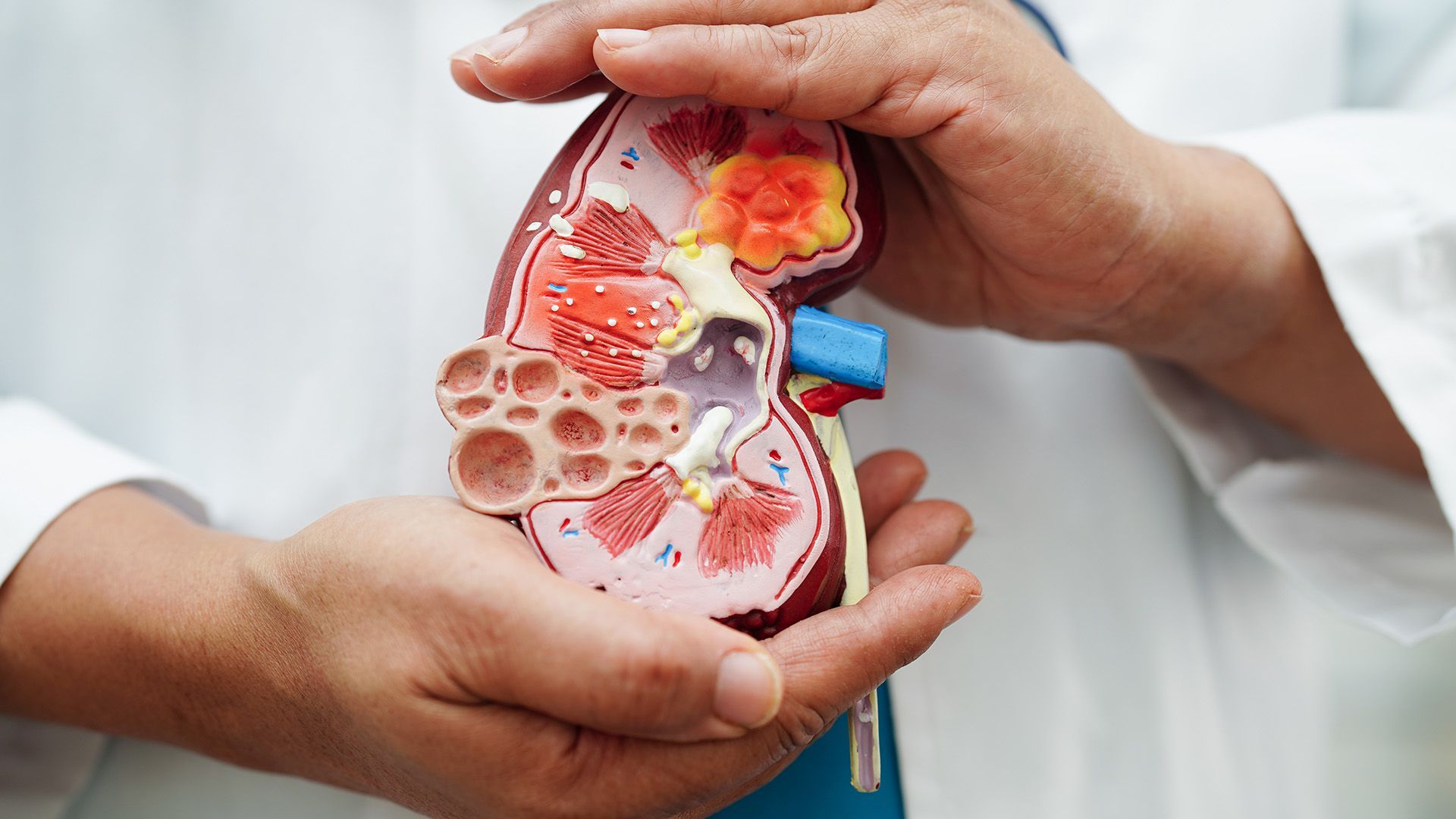Acclaimed paediatric kidney specialist receives prestigious global recognition
Shining a spotlight on local excellence in paediatric nephrology
A passion for ensuring patients receive the best possible care while also advancing the science of nephrology has culminated in a highly respected paediatric nephrologist and advisor on the Transplant Ethics and Advisory Committee for Netcare, Professor Rajendra Bhimma, receiving a Fellowship to the International Society of Nephrology (ISN).
Based at Netcare St Augustine’s Hospital, Professor Bhimma was recently awarded the Fellowship to acknowledge his extensive work in research, community-based outreach and teaching of paediatric nephrology, among others.
Among his other portfolios, he also heads up the Paediatric Kidney Clinical Unit at Inkosi Albert Luthuli Central Hospital, which is affiliated with the University of KwaZulu-Natal (UKZN) and is the Chairperson of the KZN Renal Transplant Panel.
Professor Bhimma, however, has no time to bask in the reflected glory of his many accomplishments. He is working hard to find answers to the many questions he has about several worrying kidney-related illnesses being experienced by South Africans. He explains one of these, saying that the average age of patients beginning dialysis in KwaZulu-Natal is just around 43 years. By comparison, the average age of patients going into dialysis in the USA and Canada is between 62,5 years and up. “There, they have a geriatric population going onto dialysis. Here, we have young people at the most productive stage of their lives with stage five chronic kidney disease. We don’t fully understand it, but studies are underway to determine why this is the case. We’re seeing a lot of children and teenagers going onto dialysis. We have to find out why.”

KZN's champion for children's kidney health: Professor Rajendra Bhimma, who practices at Netcare St Augustine’s Hospital, has received global recognition with a Fellowship from the International Society of Nephrology for his pioneering work in paediatric kidney disease.
What does the achievement of the ISN Fellowship mean?
The status of Fellow of the International Society of Nephrology (FISN) indicates professional excellence to both the recipient’s peers and patients, as well as medical professionals worldwide. While thrilled at the news that he’d got the Fellowship, Professor Bhimma said he didn’t initially believe it.
“To be considered, you have to do groundbreaking, innovative research, not descriptive studies. They look at your training and teaching of paediatric nephrology to the larger community, and I’ve trained quite a few paediatric nephrologists. Then, they look at your community outreach and how you simplify everything and bring it to the community. For instance, I’ve done radio talk shows and talks at schools, religious gatherings as well as interest groups.”
Reka Dulandas, Netcare’s KwaZulu-Natal regional transplant manager, paid tribute to Professor Bhimma, saying his expertise and contributions to kidney medicine are widely recognised. “His dedication to advancing medical knowledge and improving patient outcomes is evident not only in his clinical work, but also in his significant roles in academia. As a committed educator and researcher, he has been instrumental in developing best practices in paediatric nephrology.”
She said Professor Bhimma has shown unwavering dedication to the field of transplant medicine. “A valued advisor on the Transplant Ethics and Advisory Committee for Netcare, his deep understanding of ethical considerations and patient care helps maintain the highest standards in transplant procedures. Furthermore, his role as Chairperson of the KZN Renal Transplant Panel highlights his leadership in driving improvements in renal care in the region, particularly in the area of kidney transplants.”
A change in plan
Professor Bhimma began his career in internal medicine in adults, but this was not where he would end up making his mark on the medical world. “Originally, I wasn’t going to become a paediatrician. The shift in my career happened surprisingly. In my final exam, I cheeked my examiner because I knew I was right and he was wrong. But he didn’t like that, so he failed me, and I had to repeat six months of my training. During the time I did a repeat stint in paediatrics, my friend’s dad, Dr Ronnie Pillay, told me he thought I should do paediatrics. ‘You’ll never go wrong,’ he said.”
Professor Bhimma went to Canada to complete his super-specialist training in kidney disease in children, and when he returned, he began performing kidney transplants for children at King Edward Hospital. “Previously, we used to transplant adult patients only, and children in KwaZulu-Natal were referred to Johannesburg or Cape Town. Many patients were from poorer communities and couldn’t afford to go all the way there for the transplants they needed.
“My research in children with hepatitis B showed that a large percentage of affected children have a genetic mutation that predisposes them to kidney disease. We found that many of these children also had silent liver disease, which was quite severe. We were able to treat them, and the majority of them recovered. We don’t only work on the pathogenesis of a disease. We also treated the disease. The biggest advance was the introduction of the hepatitis B vaccine in April 1994. Now that the vaccine is available, this disease will almost disappear. “
In 2003, Professor Bhimma started doing kidney transplants for children at Netcare St Augustine’s Hospital. “Fortunately, if we are able to treat them early, in many instances, we can defer a transplant until they are adults.”
Sharing his knowledge with new medical practitioners is very important to Professor Bhimma. “Research dictates clinical practice. Science is constantly being evaluated and changing. From the existing research, we see that what’s applicable in high-income countries may not be applicable to us. We’re doing much innovative work and looking at genetic studies in chronic kidney disease. We’re asking questions all the time. We must find the answers that are relevant to us here, and not to a different country, far away. We want to help our people at home. We owe that to our patients.”
Worrying rise in kidney disease
Professor Bhimma says kidney disease is on an exponential rise. “According to World Health Organization data on non-communicable diseases, in 2005, kidney disease did not make the top 20. By 2013, it was at number 16 or 17. In 2021, it was at number nine, and by 2040, we expect it to be at around number five on the list. The ISN plans to request that the WHO consider a resolution on kidney disease at the World Health Assembly in May 2025, aiming to elevate its status as a priority NCD. In KZN, we have a very high incidence of chronic kidney disease. People need to be aware that lifestyle choices can influence a lot of this. Choosing not to exercise, being obese, and not treating infections, hypertension, and diabetes are killing a large number of patients. For instance, the danger of heart disease gets a lot of attention, but people must remember that our kidney health is very important too.” Alarmingly, the WHO’s data indicates that the number of deaths from kidney disease increased by 95% between 2000 and 2021.
Children with high blood pressure
Professor Bhimma highlights a community-based study he was involved in, which revealed disconcerting results. “I’ve had an interest in childhood hypertension. Many people don’t realise that children do get hypertension. Our study in low-income groups looked at grade 12s who are otherwise perfectly normal. We measured their blood pressure, blood sugar, weight and height, checked their urine for protein, and came up with an astonishing finding. Our study showed that 14% of black children, around the age of 17 years, already have hypertension. It’s an important finding because the figures we’d previously had for primary hypertension was for children in Western countries. We can see that these figures from high-income countries are very different from our local population.”
The study was published in the International Journal of Hypertension. “Now I belong to a consortium in hypertension research in children [Childhood Hypertension Consortium of South Africa (CHCSA)], and we’re looking at setting normative values for blood pressure in black children.”
Groundbreaking studies at genetic level
Professor Bhimma began his paediatrics career at King Edward Hospital and realised he had a flair for nephrology. His PhD thesis was on nephropathy associated with the hepatitis B virus.
“Professor Miriam Adhikari, one of my supervisors, had made an interesting observation. While Indian children, white children and those of mixed race responded to steroid treatment for nephrotic syndrome very well, many black children did not.” Later, Professor Bhimma was involved in innovative studies which showed that one of the reasons black children do not respond to steroids is because they have a mutation in a particular gene. “We found out why the steroids weren’t working. We had to look at different ways of treating them.”
Tragic end for a special patient
The story of the first child Professor Bhimma performed a transplant on will stay with him for life. “The child had gone into kidney failure from nephrotic syndrome. His bone disease from the kidney problem was so bad that he couldn’t walk. He was in so much pain that his mother used to put him in a stroller to get about. After the transplant, he recovered so well. He was walking on his own and flourished into adulthood. When he was 20, he wanted to learn how to ride a motorcycle. That’s how well he had recovered. Tragically, at the age of 22, he died in a motorcycle accident.”
Early diagnosis of paediatric kidney disease is critical
Kidneys are complex and intricate organs with different structures that do a range of things, including filtering blood, maintaining fluid balance, and regulating mineral levels in the body.
“Kidneys are complicated. We need them to function well for good health. When something goes wrong, it can lead to serious illness and even death. In children or tiny babies, the importance of a correct diagnosis, made early and accompanied by the appropriate treatment, is critical,” says Professor Bhimma.
Additional sources
https://ukzn.ac.za/news/paediatric-nephrologist-receives-prestigious-international-fellowship-award/
https://www.theisn.org/in-action/community/fellow-of-the-isn/#fisn-2025
https://www.who.int/news-room/fact-sheets/detail/the-top-10-causes-of-death













